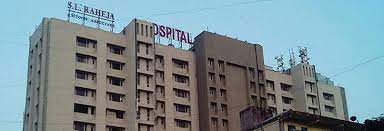
Website: https://www.rahejahospital.com/speciality/cancer-hospital-mumbai
Information
Cancer treatment is divided into 3 parts Surgical Oncology, Medical Oncology and Radiation Oncology.
It is indeed a matter of great pride and relief that in the present times, Cancer is no longer dreaded as an incurable disease. This is due to radical advancements in the realm of cancer treatment, combined with a significant improvement in medical infrastructure and better knowledge and awareness about the ways to prevent, tackle and cure this disease. Early detection and advanced diagnostic procedures have resulted in a comparatively better survival rate amongst those affected by cancer.
This is aptly demonstrated by S.L Raheja Hospitals (A Fortis Associate), one of the top cancer hospital in Mumbai in the country known for its accurate cancer diagnosis and world-class cancer treatment with the best cancer specialists.
Recent Advances in the medical line of treatment have changed the Therapeutic landscape and revolutionized the treatment of cancer.
S. L. Raheja Hospital, have the highly qualified and expert team of Oncologists, who provide international standard treatments as per worldwide recommended guidelines. We believe in evidence-based medical practice.
Procedures Available at S L Raheja Fortis Hospital
A wide range of treatments and procedures are available at S L Raheja for effective cancer care and management.
Some of the notable treatments for cancer are:
1) Radiation Therapy: Radiation therapy uses high-energy, controlled radiation to treat cancer or to reduce the pain and other symptoms. S.L Raheja Hospital uses cutting edge equipment that can target the radiation beam directly and solely on the cancer cells, whilst leaving the surrounding healthy cells untouched.
2) Immunotherapy: It is a form of treatment that uses substances manufactured by the body or in a laboratory to fight cancer by strengthening the body’s immune system. Some of the types of immunotherapy include oncolytic virus therapy, T-cell therapy, cancer vaccines and tumour-agnostic therapies.
3) Bone Marrow: This is a procedure used to collect the bone marrow located inside the bones and is used to diagnose bone and marrow diseases as well as some cancers.
4) Chemotherapy: This treatment involves using powerful chemicals or drugs to kill fast-growing cancer cells in the body.
5) Hormonal Therapy: Also known as endocrine therapy, this procedure helps reduce the cancer symptoms by either inhibiting the body’s ability to synthesize hormones or by interfering with the way hormones behave in the body.
6) Cryotherapy: This is a minimally invasive procedure which freezes the prostate tissue resulting in the death of cancer cells and is sometimes used as an alternative to prostatectomy (removal of the prostate gland)
7) Lumpectomy: In this treatment, the “lump” or the breast tumour and some of the normal tissue surrounding it is removed.
8)Mastectomy: This is the removal of the entire breast as a way to prevent or treat breast cancer.
9) Gamma Knife Radiosurgery: It delivers a single, large dose of radiation to a specific region in the brain with surgical precision in order to stop the reproduction of cancer cells. The advantage of this method is that the absence of incision removes the risk of bleeding and infection and also results in reduced side effects.
10) Colectomy: Also known as bowel resection, this surgery removes part of or the entire colon and is used to treat conditions such as bowel obstruction, colon cancer, Crohn’s Disease, Ulcerative colitis and others.
11) Brachytherapy: This involves injecting radioactive material directly into the body and has fewer side-effects compared to external beam radiation. This method is used to treat many types of cancers including eye cancer, pancreatic cancer, prostate cancer, brain cancer and many others.
12) Tomotherapy: It is a form of IMRT which is used to treat multiple metastases simultaneously, besides treating luproceduresng, breast and prostate cancers.
What are the important tests that are conducted to detect cancer?
Facilities at S L Raheja Fortis Hospital
- Dedicated chemotherapy centre with specially trained staff
- Eight specialists in the field of Onco medicine and 19 Onco-surgery experts
- State-of-the-art laparoscopic surgery and robotic surgery
- Equipped with facilities for latest scanning and diagnostic processes including Computed Tomography (CT), Magnetic Resonance Imaging (MRI), Positron Emission Tomography (PET) Scan
- Nuclear Medicine Scanning
- Ultrasound, X-rays and other radiographic tests
- PAP and PSA tests for cervical and prostate cancers
Contact
Mailing Address:
Raheja Rugnalaya Marg, Mahim (W), Mumbai, Maharashtra – 400016, India.
Phone:
Email:

